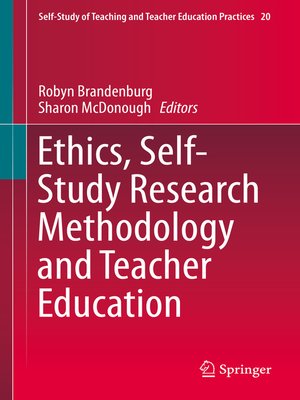Ethics, Self-Study Research Methodology and Teacher Education
ebook ∣ Self-Study of Teaching and Teacher Education Practices
By Robyn Brandenburg

Sign up to save your library
With an OverDrive account, you can save your favorite libraries for at-a-glance information about availability. Find out more about OverDrive accounts.
Find this title in Libby, the library reading app by OverDrive.



Search for a digital library with this title
Title found at these libraries:
| Library Name | Distance |
|---|---|
| Loading... |
This book examines the nuanced and situated experiences of self-study researchers. It explores the ways in which ethics are dynamic, idiosyncratic and require an ongoing ethical reflexivity. In addition, the book identifies, documents and collates the collective experiences of self-study researchers and sheds new light on the role and impact of ethics, ethical dilemmas and ensuing decisions for education researchers.
The book considers the ethical dilemmas that self-study researchers in teacher education face, their careful ethical considerations while conducting research, and how they form their professional judgment and understanding of what it means to be an ethical self-study researcher. For self-study researchers, there are a number of ethical dilemmas and challenges that cannot be neatly captured by the frameworks and guidelines of an ethics board. For many, this requires researchers to be ever-present and re-engaged with the ethics of their own projects, from the development, through to the dissemination of their work.
Readers will gain a deeper understanding of ethics, ethical perspectives and practices in the field of self-study research.
The book considers the ethical dilemmas that self-study researchers in teacher education face, their careful ethical considerations while conducting research, and how they form their professional judgment and understanding of what it means to be an ethical self-study researcher. For self-study researchers, there are a number of ethical dilemmas and challenges that cannot be neatly captured by the frameworks and guidelines of an ethics board. For many, this requires researchers to be ever-present and re-engaged with the ethics of their own projects, from the development, through to the dissemination of their work.
Readers will gain a deeper understanding of ethics, ethical perspectives and practices in the field of self-study research.







